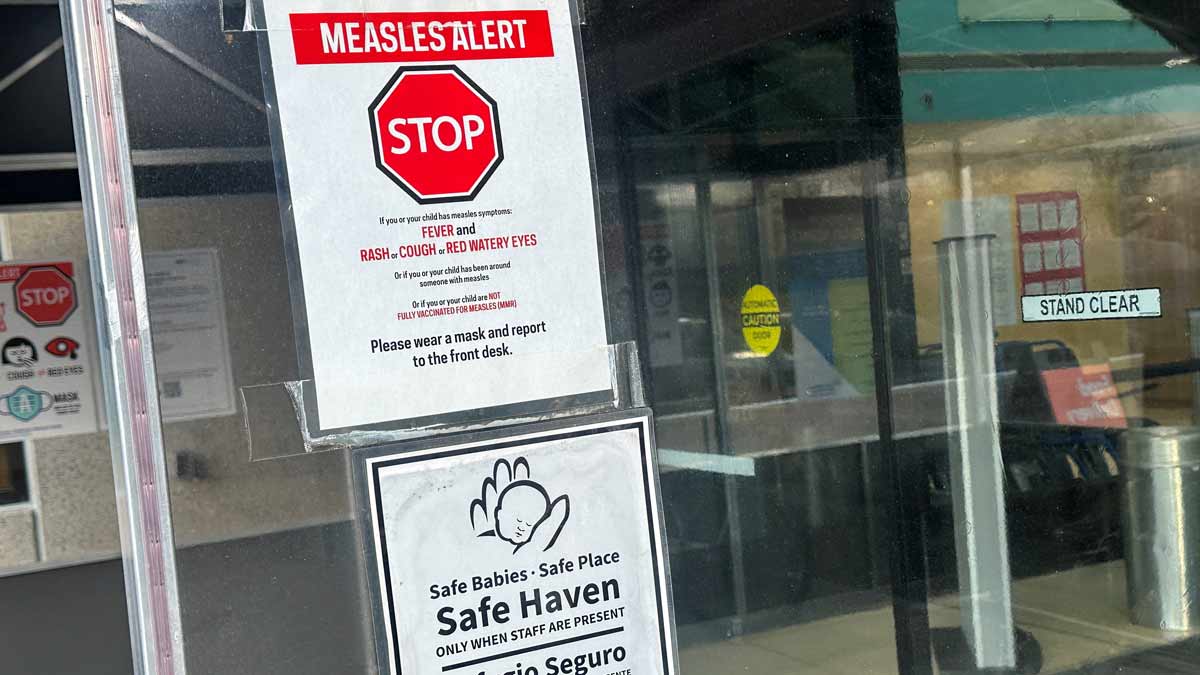Measles outbreak scare at Shakira’s concert in New Jersey, officials issue warning
 A measles alert sign hangs outside the entrance to the Cohen Children's Medical Center in New Hyde Park, New York, US | Reuters
A measles alert sign hangs outside the entrance to the Cohen Children's Medical Center in New Hyde Park, New York, US | Reuters
During singer Shakira’s 'Las Mujeres Ya No Lloran' tour stop, a massive crowd of 55,000 fans got together to spend the night dancing and enjoying the concert, but they met with a big disappointment.
They now have to be cautious about the symptoms of the measles virus as one of the attendees of the concert that was conducted on May 15 at MetLife Stadium, New Jersey, was diagnosed with the highly contagious measles virus.
As measles cases are rising day by day in the US, health officials have issued health advisories to the public and to those who attended the concert to look out for the symptoms and take steps if symptoms are noticed.
According to the Mayo Clinic, measles, also called rubeola, was once a common childhood illness. It is caused by a virus that spreads easily through the air and settles on surfaces. A vaccine can prevent measles infection.
This virus, being a contagious one, is a nightmare, especially for small children, pregnant women, and people with weaker immune systems. Therefore, it is necessary to take a step back if they are surrounded by people who are diagnosed with this viral infection.
Even though the virus cannot be generally called deadly, it sure has some worse risk factors such as pneumonia, pregnancy complications, and even death. So, the symptoms of this otherwise called deadly virus are high fever, dry cough, runny nose, and red watery eyes called conjunctivitis.
One should not mistake it to be a regular old cold and it is important to note that the symptoms usually occur after 7 to 14 days after exposure. Hence it is important to stay on the lookout for the respective symptoms of the measles virus and also avoid crowded places. Be vigilant to stay focused on your bodily needs and try to cancel your overseas plans.
On noticing the symptoms, visit a health professional immediately. Medical practitioners could advise individuals to take the MMR vaccine which is proven to be 97% effective against the virus. After all, prevention is better than cure, right?
Health